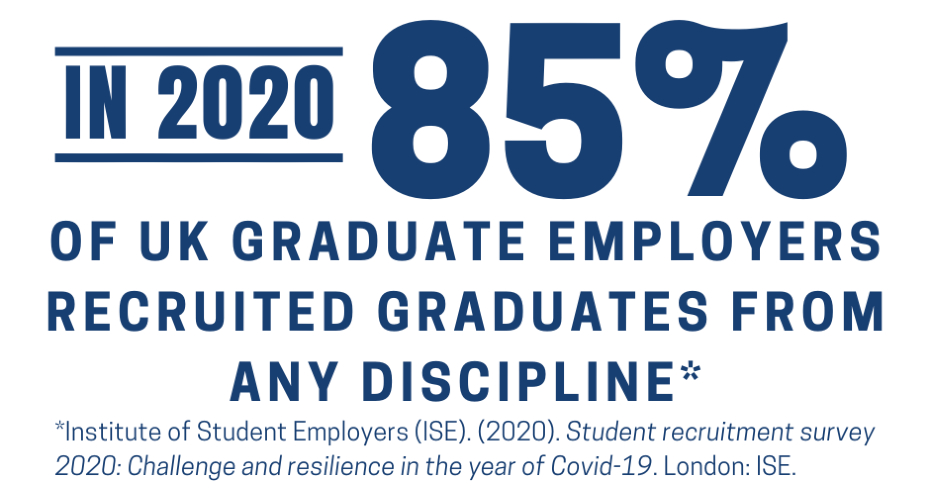
Margalida Ortega Adrover, MEng Renewable Energy (2018)
'I love my job because I am involved in almost every stage of every project.'
Renewable Energy Engineer, ENGICO2EN SLP

What can I do with a degree in Renewable Energy?
The below offers a selection of the destinations University of Exeter graduates from Renewable Energy Engineering and Sustainable Energy Futures, defined together as renewable energy graduates, have gone on to. The information below is not exhaustive, however it does highlight the range of job and further study options available to you after your studies.
If you would like to learn more about any of the jobs listed below you may wish to browse the job profiles on the Prospects website.
Careers with a degree in Renewable Energy
Recent Exeter Renewables graduates have entered a wide range of careers. Some recent examples include:* (note most popular roles highlighted in bold)
- Aerospace Engineer
- Broker
- Business Developers
- Environmental Engineer
- Commercial Manager
- Data Analyst
- Design Engineer
- Economic Analyst
- Engineer (manufacturing | mechanical)
- Fabricator
- Sustainability and Energy Engineer
- Graphic Designer
- Renewable Energy Consultant
- Postdoctoral Research Fellow
- Project Engineer
- Quality Engineer
- Solar Engineer
- Workforce Specialist
Remember…
Many employers accept applications from graduates with any degree subject, so don't restrict your thinking to the jobs listed above. Use Prospects A-Z database of occupational profiles to find out more about the above roles.
Other resources:
University of Exeter
- University of Exeter Employment sector pages. See Energy and Natural Resources.
- University of Exeter Alumni Profiles database to explore what renewable energy graduates do after their degree (select subject of study to filter)
- University of Exeter research in renewable energy.
- LinkedIn Exeter renewable energy alumni tool (you will need to be logged in to LinkedIn to access this functionality)
- University of Exeter Career Zone podcast “carbon transitions: evolution in the energy sector”.
UK resources
- Energy Institute (EI)
- Graduate Outcomes Data: a deep dive into the data on what Renewable Energy graduates do after their degree
- Institute of Electrical Engineers (IEE)
- Institute of Mechanical Engineers (IMechE)
- Prospects guide to engineering and manufacturing roles
- Prospects Renewable energy careers
- Target Jobs guide to engineering
International resources
- Global Energy Institute (GEI)
- International Energy Agency (IEA)
- International Renewable Energy Agency (IRENA)
* Aggregated Data taken from aggregating the responses from full-time, first degree, UK domiciled students who completed Graduate outcomes from 2017/18 to 2021/22 Graduate Outcomes surveys
Employers of Exeter alumni with a degree in Renewable Energy
Recent Exeter Renewable Energy graduates have entered a wide range of careers. Some recent examples include:*
- AMMP Technologies
- Aquaterra Energy
- Bennamann
- Blefield Service
- Buckinghamshire Council
- Buro Happold
- Corner Concrete Product (CCP)
- Corre Energy
- Estover Energy
- Fugra
- Genserve
- Harmony Energy
- Kensa Contracting
- Kensa Heat Pumps
- Leader Specialist Components
- Natural Generation
- Novus
- Qoda Consulting
- Quality Engineering Design
- RES
- SELCO
- Semecart
- Siemens Gamesa
- SRE
- TJC Agricultural
- UK Research Institute
- Validient
- Zenobe
* Aggregated Data taken from aggregating the responses from full-time, first degree, UK domiciled students who completed Graduate outcomes from 2017/18 to 2021/22 Graduate Outcomes surveys.
Skills
An Exeter Renewable Energy degree will arm you with some great employability skills including:
Soft/Transferable Skills
- Adaptability and flexibility: ability to thrive in a rapidly changing environment.
- Communication and interpersonal skills: effective written and verbal communication, teamwork, and collaboration.
- Diagnostic problem solving: process of identifying the root cause of a problem through systematic investigation and analysis of symptoms or data.
- Leadership and teamwork: Inspiring and motivating others, working collaboratively in teams.
- Logical problem solving: use of structured reasoning and systematic analysis to identify, understand, and resolve issues or challenges.
- Problem-solving and critical thinking: ability to analyse complex problems, identify solutions, and make informed decisions.
- Project management: planning, organising, and executing projects efficiently.
Technical/Specialist Skills
- Data analysis and modelling: proficiency in data analysis tools and techniques, including statistical analysis and simulation modelling.
- Energy efficiency: understanding of energy-efficient technologies and practices.
- Energy systems analysis: modelling and analysing energy systems to optimize efficiency and sustainability.
- Engineering principles: solid foundation in engineering principles, such as thermodynamics, fluid mechanics, and electrical engineering.
- Environmental impact assessment: evaluating the environmental consequences and ethical implications of energy projects.
- Renewable energy design and implementation: ability to design, implement, and maintain renewable energy projects.
- Renewable energy technologies: understanding of various renewable energy sources (solar, wind, hydro, geothermal, biomass) and their applications.
- Sustainable energy policy: knowledge of energy policies, regulations, and economic frameworks.
Further Study
Around 16 % of Renewable Energy graduates go on to pursue further study within 15 months of completing their undergraduate degree. Some recent progression routes include:
- Masters in Mechatronics
- Chartered Financial Analyst
- MSc Energy and Environmental Sciences
- MSc Engineering for International Development
- MSc Sustainable Design
- MSC Sustainable Energy
- MSc Sustainable Energy Technology
- PGCE Secondary Education
- PhD Engineering
- PhD Renewable Energy
Some sample University of Exeter postgraduate options:
- Civil Engineering MSc
- Construction Design Management MSc
- Electrical Power and Smart Grids MSc
- Engineering Business Management MSc
- International Supply Chain Management MSc
- Mechanical Engineering MSc
- Renewable Energy Engineering MSc
Useful resources
- Find a Masters
- Masters Compare
- Masters Portal
- University of Exeter Career Zone help with applying for postgraduate study
- University of Exeter PG Study
